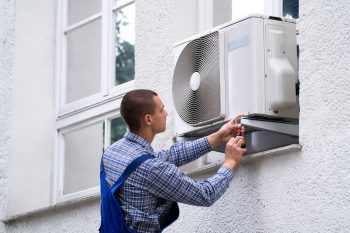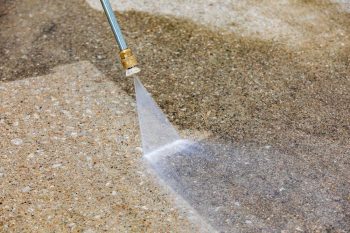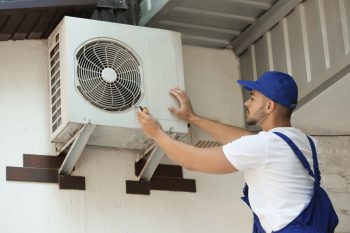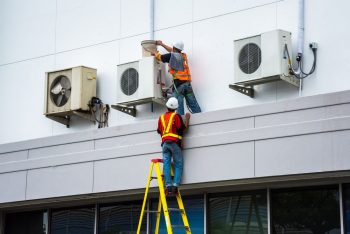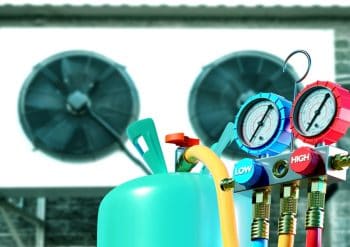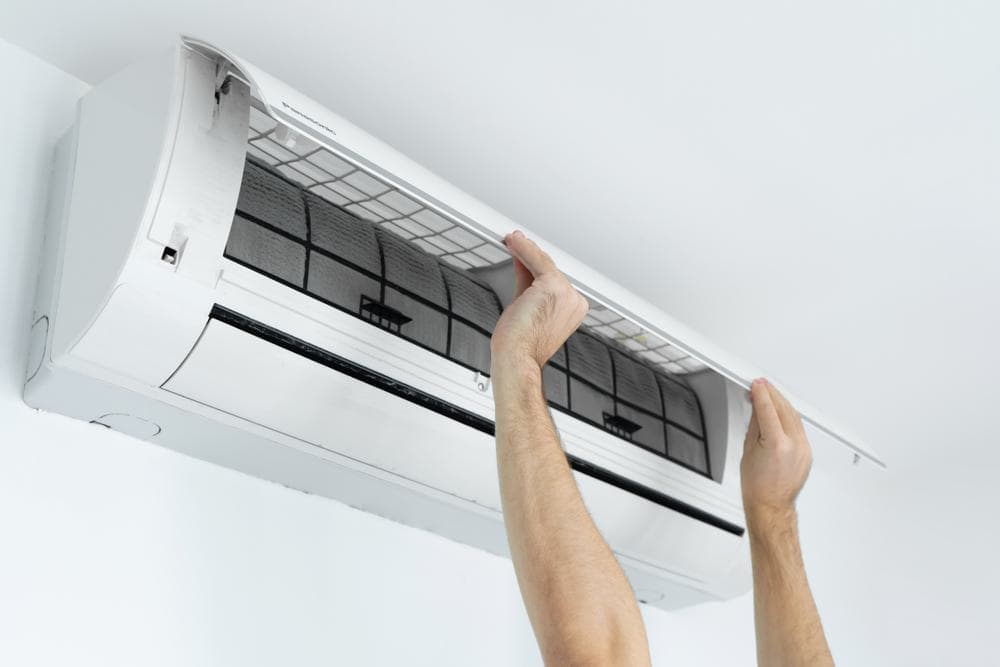
If your air conditioning unit is making noises akin to a jackhammer, it’s a clear sign that something isn’t right. While some noise from your AC unit is normal, such loud, disruptive sounds are not and usually indicate a problem that needs attention. In this comprehensive guide, we’ll delve into the potential causes of these noises, the risks of ignoring them, and the steps you can take to diagnose and resolve the issue.
Your AC unit might sound like a jackhammer due to several issues such as a faulty expansion valve, loose or broken parts in the compressor, damaged motor bearings, an unbalanced fan wheel, or broken or worn parts in the heat pump. These noises usually indicate a problem that needs attention. Ignoring these sounds could lead to more severe problems or expensive repairs. It’s recommended to consult a professional HVAC technician to diagnose and fix the issue.
What Does a Normal AC Unit Sound Like?
First, let’s discuss what a normally functioning AC unit sounds like. It will typically produce a gentle hum or whooshing sound when running, as it continually blows cool air through your home’s ducts and vents. You might also hear a clicking noise when the air conditioner starts or ends a cooling cycle, which is caused by an internal switch flipping on and off. Additionally, a brief sound resembling a tiny airplane taking off may occur when the air conditioner starts up, as a result of many moving parts coming together.
When Does Noise Indicate a Problem?
Contrarily, a malfunctioning AC unit may produce unusual and loud noises, which could indicate a problem. Some of these noises include:
- High-pitched squealing, which could be due to bad fan motor bearings or a worn-out or broken fan belt.
- Banging, which might be caused by a loose or broken component inside the unit.
- Clicking, which could indicate a problem with the relay switch or electrical connections.
- Buzzing, which may be a result of a faulty compressor or an electrical issue.
- Hissing, which could be caused by a refrigerant leak or a malfunctioning expansion valve.
- Rattling, which might be due to loose parts or debris inside the unit.
If you hear any of these unusual noises coming from your AC unit, it is recommended to seek professional help to diagnose and fix the issue.
Potential Causes of Jackhammer Noises
Several issues could cause your AC unit to sound like a jackhammer. These include:
- Faulty expansion valve: A malfunctioning expansion valve can cause the unit to flood with refrigerant, leading to loud noises.
- Loose or broken parts in the compressor: Connecting rods, piston pins, crankshafts, or support springs and screws can become loose or damaged, causing banging noises.
- Damaged motor bearings: Worn motor bearings can lead to off-center motors and screeching noises.
- Unbalanced fan wheel: An unbalanced fan wheel can cause vibrations and loud noises.
- Broken or worn parts in the heat pump: Loose screws, bolts, or rusty fan blades hitting other components can cause banging noises.
Risks of Ignoring the Noise
Ignoring these noises and continuing to operate the AC unit without intervention can lead to more severe problems, expensive repairs, or even the need for a complete unit replacement. It is essential to address any unusual noises promptly by consulting a professional HVAC technician to diagnose and fix the issue.
Troubleshooting Your Noisy AC Unit
Before calling a professional, you can do some basic troubleshooting:
- Inspect the unit: Check your AC unit for any visible issues, such as loose parts, debris, or damage to the fan or condenser.
- Check for bypass damper issues: A bypass damper is a common cause of noise in HVAC systems. If you suspect a problem with the bypass damper, contact a professional HVAC technician to inspect and repair the issue.
- Look for electrical problems: Clicking noises can be a sign of electrical issues. If you suspect an electrical problem, do not attempt to fix it yourself. Instead, contact a professional HVAC technician to diagnose and repair the issue.
When to Call a Professional
While some minor issues might be fixable with basic DIY skills, it’s always best to call a professional HVAC technician if you’re unsure or if the problem persists. Professionals have the necessary training and tools to safely diagnose and fix problems, preventing further damage to your AC unit and potentially saving you from more costly repairs down the line.
Conclusion
In conclusion, unusual noises from your AC unit, especially those that sound like a jackhammer, should not be ignored. They are often a sign of underlying issues that need to be addressed. By understanding the potential causes of these noises and taking prompt action, you can ensure the long-term health and efficiency of your AC unit.
Frequently Asked Questions
What is an HVAC technician?
An HVAC technician is a professional who specializes in the installation, repair, and maintenance of heating, ventilation, air conditioning, and refrigeration systems.
What is a bypass damper?
A bypass damper is a component in an HVAC system that adjusts the air flow to maintain the desired temperature and pressure within the system. When the system doesn’t need as much cool or warm air, the bypass damper opens to allow air to bypass the system and return to the air handler.
What does a refrigerant do in an AC unit?
A refrigerant is a substance used in the cooling mechanism of an AC unit. It absorbs heat from the indoor air and releases it outside, thereby cooling down the air inside the room or building.
How often should I service my AC unit to prevent such issues?
It’s generally recommended to have your AC unit serviced at least once a year, typically in the spring before the summer heat hits. Regular servicing can help in early detection of potential issues and increase the lifespan and efficiency of your unit.
What is a compressor in an AC unit?
A compressor in an AC unit is a vital component that circulates the refrigerant through the system. It compresses the refrigerant, raising its temperature and pressure, and sends it to the condenser where the heat is released.

